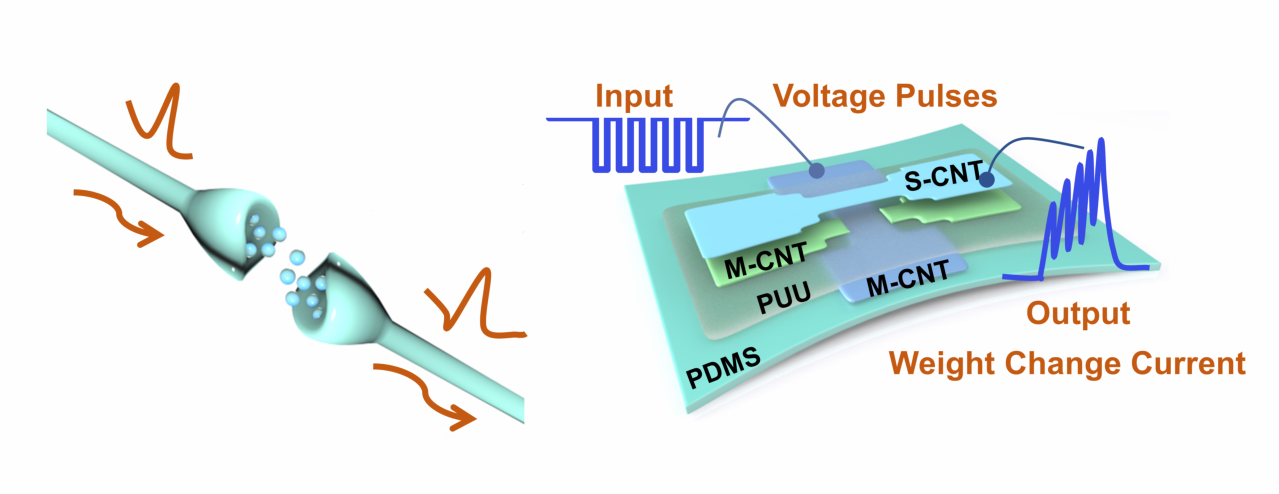Recently, Professor Zhang Min and Huang Weihong, the corresponding author and the first author of our research group, published the research results entitled “Intrinsically stretchable carbon nanotube synaptic transistors with associative learning ability and mechanical deformation response” on Carbon.
In this paper, the intrinsic stretchable carbon nanotube synapse transistor based on urethane urea dielectric is realized for the first time. The synaptic transistor successfully simulated the short-term synaptic plasticity in the process of excitation and inhibition, realized the specific response to the English letters encoded by Morse code, and exhibited associative learning ability, and realized the imitation of Pavlov’s classical conditioned reflex experiment. In addition, we further study the effect of mechanical deformation on synaptic plasticity of synaptic transistors, and the results show that synaptic plasticity can be regulated by mechanical deformation. This work provides a new method to realize stretchable neuromorphic devices and demonstrates the potential of constructing stretchable neuromorphic electronic systems.
Stretchable synaptic transistors with the ability to emulate multiplexed neural signal transmission is an important step toward mimicking complex brain activities in bionic memory sensors, intelligent soft robots, and skin electronics. The reports about stretchable artificial synaptic transistors are limited and further exploration is urgently required. In this work, intrinsically stretchable carbon nanotube synaptic transistors (IS-CNT-STs) with poly (urea-urethane) dielectric have been realized. The synaptic characteristics and the synaptic mechanism have been analysed. Synaptic functions of the biological synapses including excitatory and inhibitory behaviours, short-term plasticity, and filtering characteristic are successfully emulated in the IS-CNT-STs. Moreover, the IS-CNT-STs have exhibited excellent mechanical stretchability even after experiencing large stretching deformation. After stretched by 50% strain, and even after 400 stretching cycles by 25% strain, both the transistor characteristics and the synaptic functions remain correctly. The realized IS-CNT-STs possess low operating voltage, multiple synaptic plasticity, and mechanical deformation response. The demonstrations indicate their capability to work in the stretchable artificial neuromorphic systems.
The article links:

